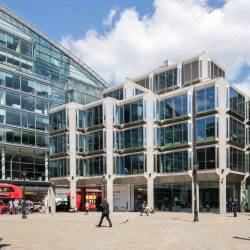February 5, 2019
A morning adrenaline rush improves workplace productivity
 A new academic study has found the benefits of taking part in adrenaline boosting activities before work. Researchers from the University of Essex School of Sport, Rehabilitation and Exercise Science, tested workers from the International Quarter London (IQL), the gateway to Queen Elizabeth Olympic Park and discovered that taking a 40 second ride down the world’s tallest and longest tunnel slide at the ArcelorMittal Orbit improved levels of happiness, productivity, creativity, energy and focus in workers. The impacts of exercise on wellbeing have been well-documented; however, this is the first time that research has shown that similar affects can be achieved from a quick adrenaline boosting activity.
A new academic study has found the benefits of taking part in adrenaline boosting activities before work. Researchers from the University of Essex School of Sport, Rehabilitation and Exercise Science, tested workers from the International Quarter London (IQL), the gateway to Queen Elizabeth Olympic Park and discovered that taking a 40 second ride down the world’s tallest and longest tunnel slide at the ArcelorMittal Orbit improved levels of happiness, productivity, creativity, energy and focus in workers. The impacts of exercise on wellbeing have been well-documented; however, this is the first time that research has shown that similar affects can be achieved from a quick adrenaline boosting activity.















 This year is set to be a ‘buyers’ market’ for the UK’s top professionals, as the nation’s war for talent intensifies. This is according to new research from Robert Half UK, which found that nearly a third (32 percent) of those surveyed believe their skillset will be more desirable over the coming months – even against the current economic and political climate – as the supply/demand imbalance of the UK’s top talent heightens. The current skills in demand include data analysis and digital skills, as well as softer skills such as adaptability, resilience and critical thinking to help complement the evolution of the workplace.
This year is set to be a ‘buyers’ market’ for the UK’s top professionals, as the nation’s war for talent intensifies. This is according to new research from Robert Half UK, which found that nearly a third (32 percent) of those surveyed believe their skillset will be more desirable over the coming months – even against the current economic and political climate – as the supply/demand imbalance of the UK’s top talent heightens. The current skills in demand include data analysis and digital skills, as well as softer skills such as adaptability, resilience and critical thinking to help complement the evolution of the workplace. 




















January 25, 2019
The state of the workplace right now? Everywhere and nowhere, baby 0
by Paul Carder • Comment, Facilities management, Features, Premium Content, Property, Workplace design
(more…)